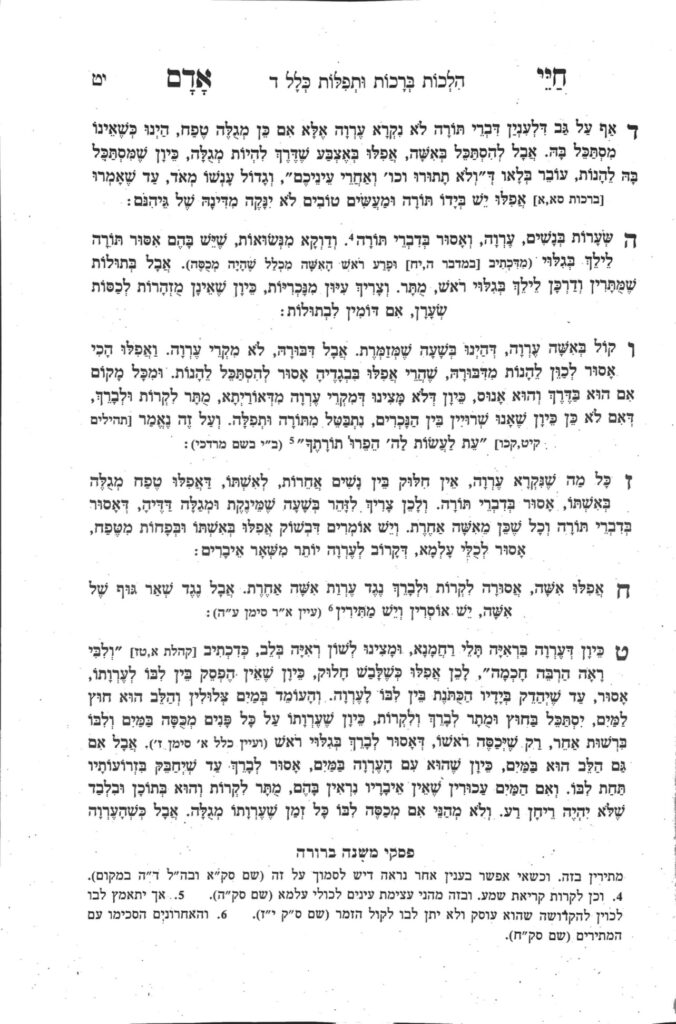We are beginning siman 5, and return to siman 4 later. The Chayei Adam writes that a woman’s hair is considered ervah, and one cannot recite devarim shebikedusha in the presence of uncovered hair. However, the Chayei Adam clarifies it only applies to the hair of a married woman, for whom it is assur to walk around with uncovered hair. The Gemara infers from the sotah, whose hair is uncovered during the sotah process, that generally it should be covered. The Gemara takes it a step further, and understands that should a woman walk around with her hair uncovered, she is transgressing das Moshe, and forfeits a part of her kesubah. The Gemara understands that covering hair is not just a custom, but is a halacha on the Torah level, and one who does not cover their hair is transgressing an issur deoraysa.
The Gemara differentiates between das Moshe and das Yehudis, the latter being customs that Jewish women took upon themselves which have become binding. A woman who does not follow das Yehudis may also forfeit her kesubah under certain circumstances. And even so, the gemara understands that haircovering is das Moshe, not just das Yehudis.
The Chayei Adam continues, and writes that unmarried women leave their hair uncovered, and therefore it is muttar to recite devarim shebikedusha in the presence of their uncovered hair.
The Chayei Adam raises the question of the uncovered hair of a non-Jewish married woman. On the one hand, they have no chiyuv to cover their hair, so it should not have the status of ervah. On the other hand, if we understand from the Torah that the proper manner for married women to dress is to cover her hair (as we learned from sotah), we could understand that once she becomes married, her hair inherently becomes ervah, so it should be a problem to recite devarim shebikedusha in her presence. I.e, which came first, the ervah concept, and therefore there is mitzvah to cover hair, or the mitzvah to cover hair, and therefore it is an ervah. The practical difference is the non-jewish married woman.
The Chayei Adam has introduced the halacha that there is a chiyuv on a woman to cover her hair. The question is raised whether this chiyuv applies to other parts of her body as well. This halacha is not due to lifnei iver (that she is creating a stumbling block for men who may have inappropriate thoughts), but rather because it is an inherent part of being a Jewish woman. We will discuss this concept further in the upcoming shiurim, be’ezras Hashem.
Summary
- A married woman’s hair is considered ervah, and one cannot recite devarim shebikedusha in her presence. An unmarried woman’s hair is not ervah. The status of a non-Jewish married woman’s hair is unclear.



